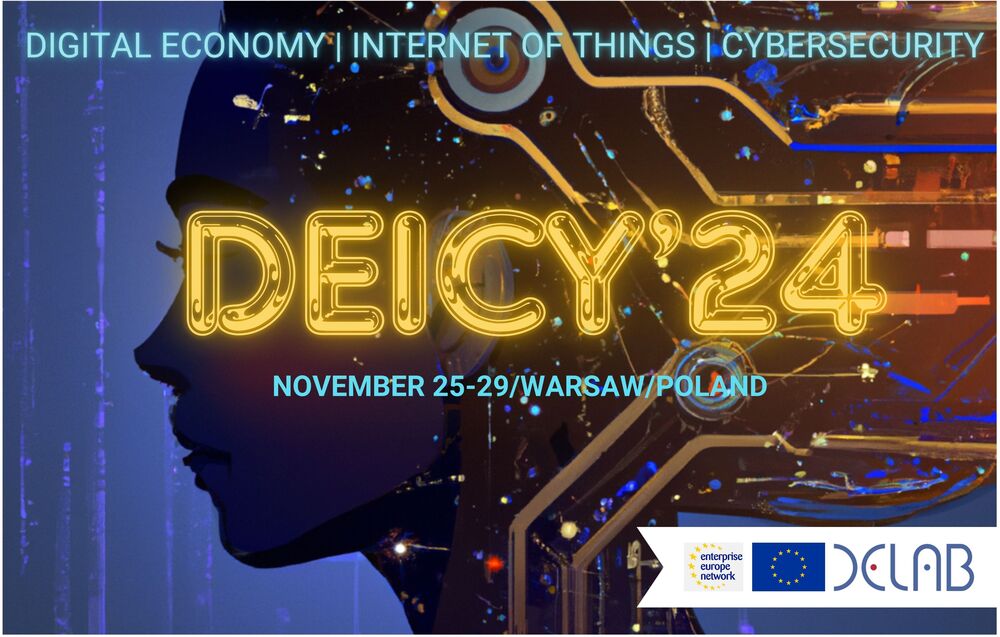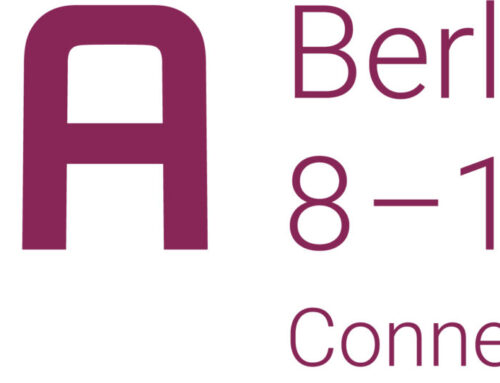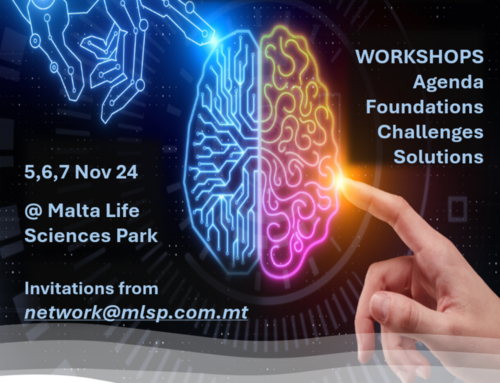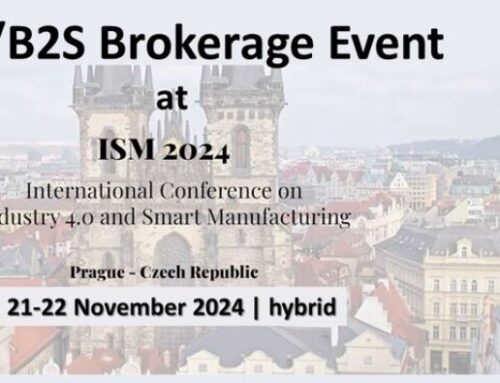A Digital Economy is taking shape before our eyes and creating new challenges and opportunities. The digital transformation is conditioned by the ongoing acceleration and intensification of digitization processes with the use of different digital technologies. This new digital reality creates new opportunities for enterprises but also new cyber threats emerge which create new needs and solutions in the area of cybersecurity.
The goal of this international brokerage event is to create a strong network of research and development institutions, business and industry partners, European and national institutions, non-government organizations in close relation for better knowledge and understanding of the digital transformation in areas: digital economy & society, artificial intelligence, machine learning, deep learning, data science, industry 4.0, cybersecurity, internet of things, 3D printing, robotics and automation, sensors, a digital simulation of production and logistics processes, CAD/CAM/CAE/Digital Twin, cloud computing, digitization of product and service offerings, 5G technology, software for business and many more.
The event will support the workshops “Digital Economy, Internet of things, Cybersecurity – science and practice” which is proposed as a space for the presentation of university research results and business solutions.
The brokerage event will explore recent achievements and challenges in the following areas:
I.Digital tranformation:
- Artificial Intelligence for Business: business models for Artificial Intelligence applications, business strategy for Artificial Intelligence solutions, future of Artificial Intelligence in business, Artificial Intelligence for production and services, Artificial Intelligence algorithms and machine learning.
- Digital Economy: e-business models, e-commerce, European Digital Future.
- Digital Society: mobility, culture, social media, competencies for the future.
- Digital Market: economical mechanisms, business models, digital platforms, big data and analytics.
- Digital Work: changing sectors of the labor market, change of work, robotization, automatization.
- Digital Government: datafication, data-driven governance, new models of policymaking.
- Digital Consumption: new models of consumption and marketing, social behaviors.
- Digital Production: industry 4.0, digital factory, digitisation of product and service offerings, Digital Twin in manufacturing new models of management of production, advanced robotics, advanced automation, digital supply chain, smart warehousing and logistics, digitisation and integration of vertical and horizontal value chains, product life cycle management in Industry 4.0, predictive maintenance, platformization, .
- Internet of Things (IoT)
- Consumer application IoT: personal IoT devices, connected vehicles, home IoT devices, wearable technology connected health, and appliances with remote monitoring capabilities, many more.
- Energy IoT: smart grids, network management, integrated control of electric vehicle fleet, control, and management of the District Heating, demand response, battery energy management, smart buildings, and other technologies.
- Environmental engineering and IoT: Water Quality, Site Remediation, Air Quality, Green Energy, many more.
- Industrial IoT: sensors, 3D-printing, cyber-physical systems, digital twin, AR/VR, cloud computing, industrial robotics, cobots, AGV, 5g, Non-cellular connectivity, edge computing, big data analytics, artificial intelligence, and machine learning, Industrial IoT and MES systems, and many more.
- Healthcare IoT: smart diagnosis, wearable devices for tracking health, patient management, availability of medical specialists in remote locations, and many more.
- Agriculture IoT: precision farming, agricultural drones, smart greenhouses, other technologies.
- Automotive Industry IoT: self-driving cars, devices consist of HD cameras, thermal sensors, smart navigators, speed controller, rain sensors, wireless connectivity, and proximity sensors, artificial intelligence, deep learning, other technologies.
- Dual-use technology: sensors, munitions, vehicles, unmanned aerial vehicle, robots, human-wearable biometrics, and other smart technology.
III. Cybersecurity
- Digital Economy and Cybersecurity challenges: Cybersecurity in industry 4.0, Cybersecurity risks, Cybersecurity & COVID-19, National Cybersecurity strategies for the digital economy, Protecting digital business, Cybersecurity in banking, Cybersecurity in SME, European Union and NATO cybersecurity policy, Cybersecurity and Insurance.
- Cybersecurity digital tools: software and technologies
- Security of digital services: cybersecurity tests, cybersecurity assessment, cybersecurity training.
- Artificial intelligence & Cybersecurity: a new method of detects of attack.
The event is free of charge and primarily targets companies and R&D institutions looking for technological, research and business co-operations.
The match-making event brings together companies (buyers as well as suppliers) from a large number of European countries. This is a unique opportunity to generate new business contacts and contracts. The model is time – and cost efficient and result in business! Meetings will take place in a dedicated area and will be arranged in advance by means of this website.
There will be inspiring plenary sessions, informative workshops and targeted 1:1 meetings promising knowledge gain and new business and science contacts.
To register click on: https://deicy2024.b2match.io/signup






